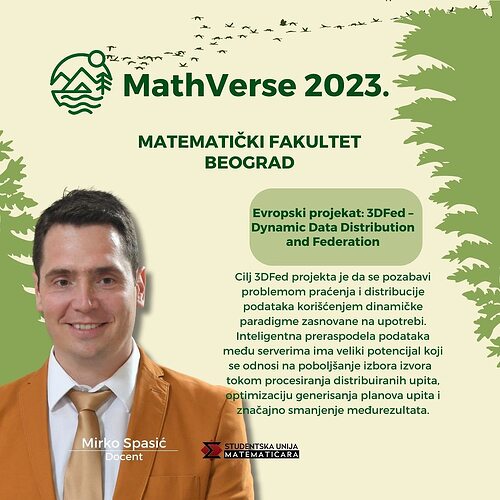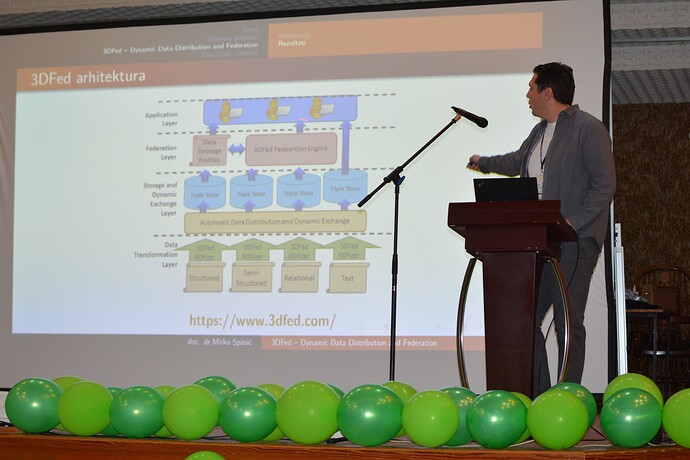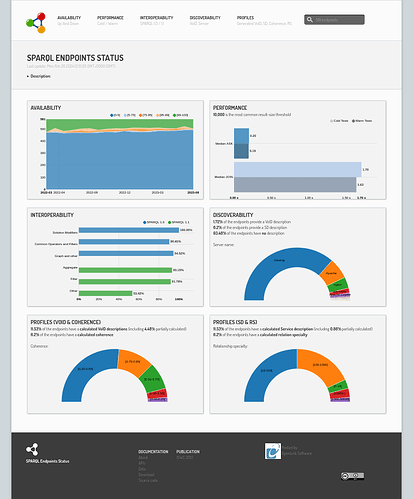We are pleased to announce that the 3DFed project and the current results were presented to a wide audience at the MathVerse conference.
The Faculty of Mathematics in Belgrade, Serbia, and the student organization Suma organized a student conference with the full name Math - language of nature - MathVerse. The conference took place from October 26 to 29, 2023 on Mount Tara in Serbia. It brought together around 100 students, mainly from the Department of Computer Science at the Faculty of Mathematics, a dozen professors from the University of Belgrade and the University of Niš, as well as representatives and guest lecturers from major global companies such as Banca Intesa, Bosch, Finbet, Mozzart and others.
The invitation to present the current activities and achievements of our project at this conference went to Mirko Spasić, on behalf of our project partner OpenLink Software. The presentation was entitled European project: 3DFed - Dynamic Data Distribution and Federation, the basic idea of which, in addition to presenting the project itself, was also didactic in nature, in order to familiarize students with the broader topic and area that the project deals with.
The one-hour presentation was followed by a session with interesting questions from the attendees and further discussion on the topic presented, which is expected to lead to some master theses by the students present.
3DFed SPARQL Endpoint Monitoring Service
We are pleased to remind 3DFed-ers that our 3DFed SPARQL Endpoint Monitoring Service, based on the open source SPARQLES platform, has been running successfully for almost two years.
OpenLink has developed this web application that serves as an automated tool for monitoring and profiling public SPARQL endpoints, i.e. RDF data storage solutions. The application is publicly available online at:
https://sparqles.demo.openlinksw.com.
It monitors the availability, uptime, average response time, performance, interoperability and discoverability of SPARQL endpoints of interest. The collected data and calculated statistics are stored in the application, but are also available as RDF, a monitoring and profiling dataset. This dataset is very valuable as it covers a wide range of endpoints and a relatively long time period. It is created by a newly added profile generation module, which has the purpose of generating useful metadata profiles (VoID, SPARQL Service Description, dataset coherence and relationship specialty) of the monitored SPARQL endpoints. The purpose of the profiles is to provide metadata useful for source selection, cardinality estimation and query planning by SPARQL federation-engine developers, especially in the context of the 3DFed project.


